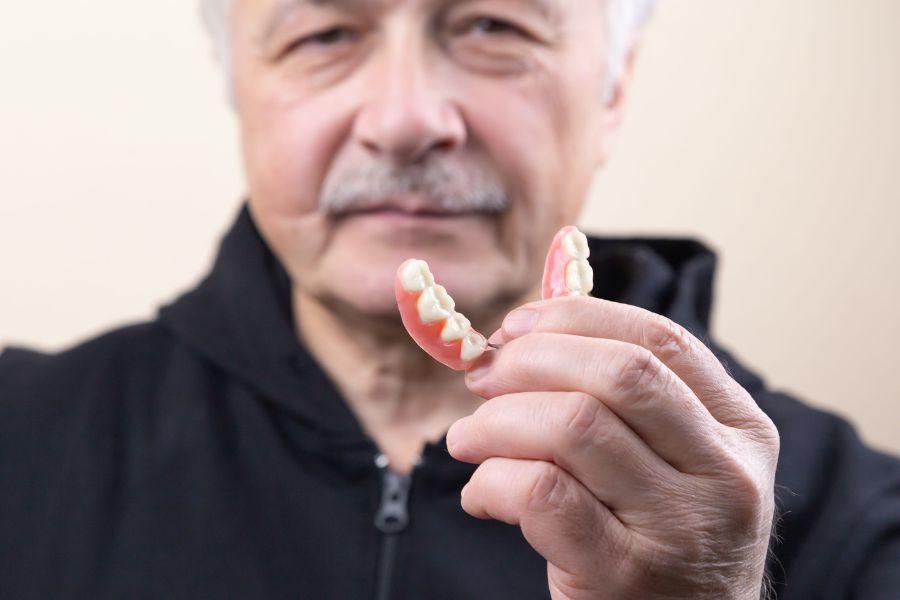Discover the essentials of partial dentures, from initial adjustments to daily care, ensuring a comfortable fit and confident smile.
Partial dentures are typically composed of artificial teeth affixed to gum-colored plastic bases. The design of these dentures depends on individual needs. They might be connected to your teeth via metal frames or clasps, or utilize more discreet connectors. Some even make use of precision attachments for a more natural appearance. These are typically more aesthetically pleasing than traditional clasps.
There are instances where natural teeth require crowns to enhance the fit of a partial denture, especially when using attachments. Opting for precision attachments might make your denture a bit pricier than the regular clasped variety. For the best fit and type, it's essential to discuss with your dentist.
What to Anticipate with Partial Dentures:
- Initial discomfort or an unusual feel is normal when you first wear them.
- It might take some time to get used to inserting and taking them out.
- Follow dentist recommendations for usage. Don't apply excessive force when fitting them in.
- In the initial phase, continuous wear might be suggested to pinpoint necessary adjustments.
- Areas of excessive pressure will be adjusted by your dentist for comfort.
- Consuming food should get easier. Begin with soft foods and balance the chewing pressure.
- Your speech might see improvement. Practice pronouncing challenging words if needed.
Denture Maintenance:
- Your dentist can suggest appropriate denture cleaners, preferably those with the American Dental Association's seal.
- Handle dentures carefully. It's wise to clean them over a towel or sink filled with water.
- Avoid toothpaste; opt for mild dish soap or hand soap instead. Avoid abrasive household cleaners.
- Daily brushing is essential to prevent stains.
- Utilize specially designed denture brushes or soft-toothed brushes.
- Ensure your dentures remain moist, preferably in a soaking solution or water overnight.
- Don't consume denture cleansers. Always rinse dentures thoroughly before use.
Adjustments and Repairs:
- Dentures might need tweaks as your mouth's structure changes with age.
- If they become ill-fitting, see your dentist for adjustments to prevent sores or infections.
- DIY adjustments or repair attempts can be detrimental. Over-the-counter glues might contain harmful chemicals, so avoid them for denture repairs.
- For any issues with your denture, like breaks or looseness, contact your dentist. Most can rectify these issues promptly, while some might need a specialized dental lab.
Information was provided in collaboration with the American College of Prosthodontists.
